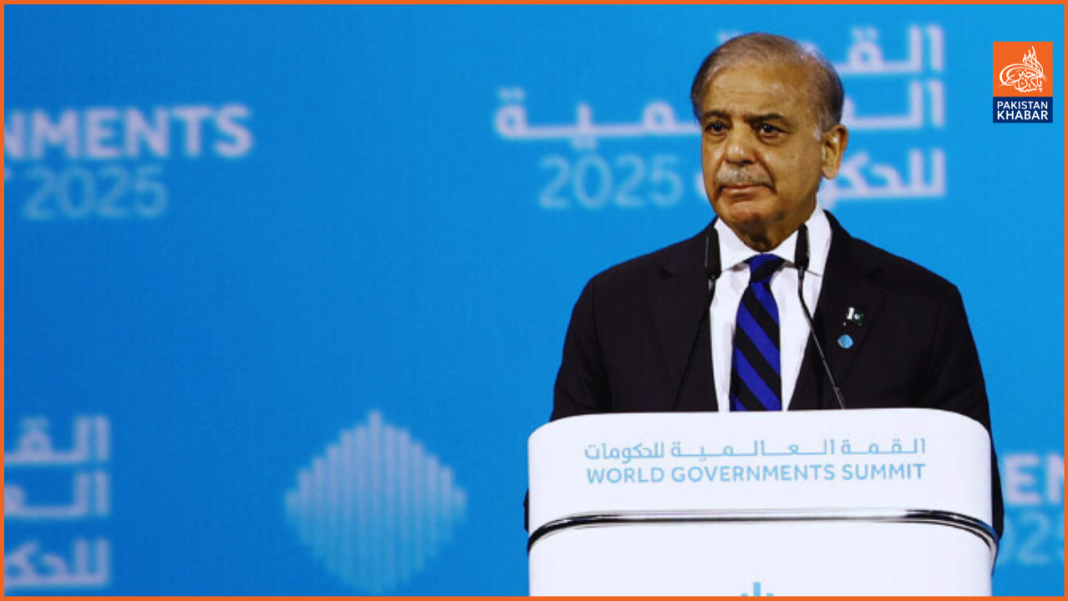While addressing the World Governments Summit in Dubai, Pakistan’s Prime Minister Shehbaz Sharif expressed the need for international cooperation to back an energy transition valued at $100 billion. Sharif stressed the need for climate finance, technology sharing, and collaborations to drive sustainable development when addressing world leaders, politicians, and corporate executives.
Sharif listed Pakistan’s lofty energy targets, such as switching to electric vehicles for 30% of the population by 2030 and increasing the proportion of clean energy to 60%. To accomplish these goals, the nation is devoting more resources to renewable energy initiatives, including solar, wind, hydropower, and nuclear power. He put it bluntly: “Global green economy shifts demand collective action.” This means that everyone has to pitch in to make this happen.
Pakistan has established the Special Investment Facilitation Council (SIFC) in an effort to entice international investors. The group would streamline corporate rules while putting an emphasis on renewable energy, the digital economy, and resilient infrastructure. Sharif painted a picture of a country teeming with young, tech-savvy people who are prepared to propel progress.
During the conference, Sharif had discussions with UAE leaders about possible investments in energy, technology, and infrastructure, as well as ways to strengthen economic ties. The World Governments Summit, he said, is a great forum because it encourages people to talk to each other and builds relationships to ensure a sustainable future.
Addressing climate change and promoting economic transformation via global collaboration were two of Pakistan’s stated goals at the summit.




